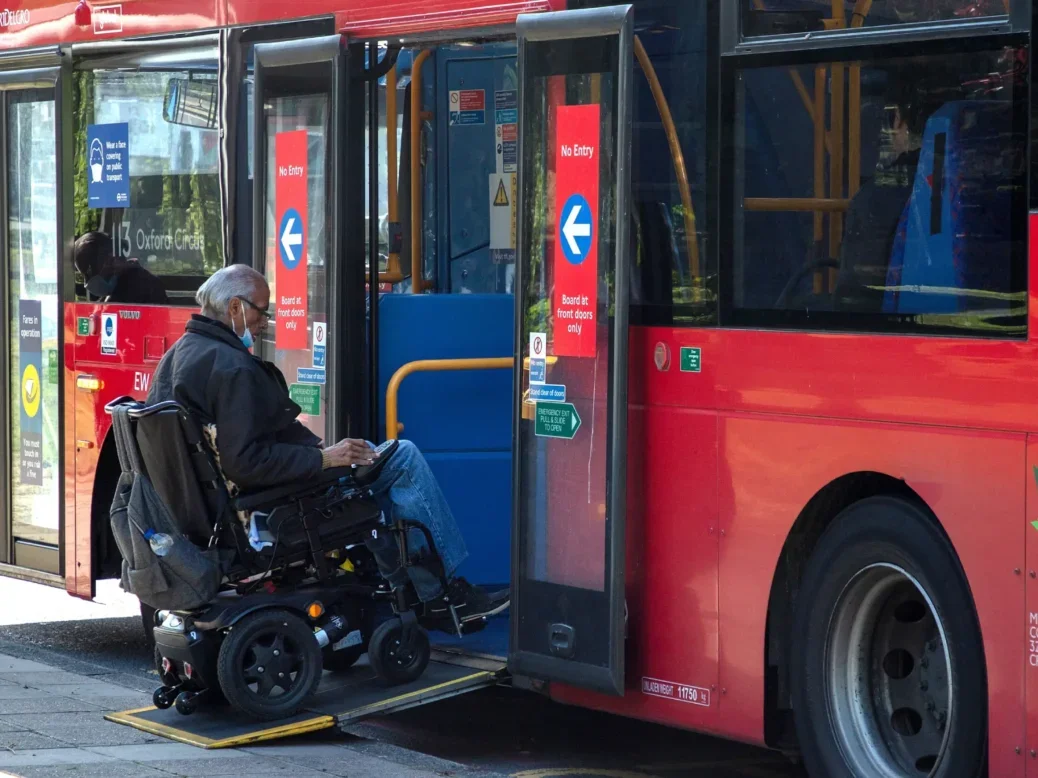
All media organisations, including the BBC, are improving access to careers in journalism to disabled people, but barriers still exist.
It’s important we have more openly disabled journalists in our industry. It’s vital because journalists help shape how we understand the world as individuals, so that we can all make informed decisions on issues that directly affect us.
If we only understand disabled people to be ‘inspirational’, to have ‘triumphed over adversity’, or to have ‘achieved a miracle’, we are presenting a narrow view where people who are disabled are still pointed out as being different.
This week marks International Day of Disabled People and on 4 December, the BBC will host the second Rethink Disability Festival.
As one of the organisers, I’m proud that this year’s festival is focused on reclaiming the narrative.
This gives disabled people the opportunity to say it’s not me that’s disabled, it’s the things around that’s around me. We are disabled by attitudinal, societal and environmental barriers.
For example, if a wheelchair user can’t get on the pavement because there isn’t a dropped curb, what is it that’s disabling the person: the wheelchair or the curb? It is of course the curb.
If a disabled person finds it difficult to get a job in journalism because the hiring manager thinks they won’t be able to do the job as well as a non-disabled person, what is disabling us?
[Read more: Academy for Disabled Journalists issues funding SOS]
The BBC is making good progress towards its workforce targets in terms of disability, and the BBC Extend in News programme launched in April 2017 to increase the number of disabled journalists in BBC News.
However, those who have a disability can be afraid to say so at work, because the fear and stigma attached to identifying as disabled still exists.
‘Disability itself is not a barrier’
There is often an assumption that because you have a condition or impairment, you cannot do your job as well as someone else.
One of the first things we’re taught as journalists is not to make assumptions, but we’re all guilty of doing it.
We need to take a step back really properly consider the logistics around disability, because disability in itself is not a barrier. The barrier is not considering the environment.
It’s also important to consider news stories about disability, on both how the story is presented and who is covering it.
Should it be the disabled journalist’s only job? We have to allow equality of opportunity to everybody, so send your disabled reporter out on other stories. As a disabled journalist, I’m likely to think of things you’ve not considered.
We all know everyone in a newsroom is extremely busy and how our operational focus has to be on output. But, we need to take care of the people who are creating the output by giving disabled people the time for a conversation about what barriers need removing so we can work to the best of our ability.
In truth, this doesn’t just benefit disabled people, it benefits everybody. You create a happier team. Respect and trust are part of the BBC’s Values and creating and promoting an inclusive newsroom is just one way of reinforcing this.
‘Sometimes we might need additional tools, but that’s okay’
BBC Ability’s Rethink Disability festival last year concentrated on TV production. What we found as a result is there’s much wider awareness of roles like access coordinators and how they benefit the production as a whole.
We have gone some way to create and normalise the conversations about disability and that disabled people have the skills and abilities to do the work just as well as everybody else.
Sometimes we might need additional tools, but that’s okay. It’s important to make sure we are all treated equitably, and that means giving everyone the tools they need.
Because that’s how we ensure that we reflect our audiences, change the narrative and start normalising the value of disabled people in our society.
Join us in person or online at the BBC Ability Rethink Disability Festival in Media City, Salford, on 4 December 2024, with all sessions available to watch back later. Explore the various panels and speakers and register on the Rethink Disability Festival website.
Email pged@pressgazette.co.uk to point out mistakes, provide story tips or send in a letter for publication on our "Letters Page" blog
